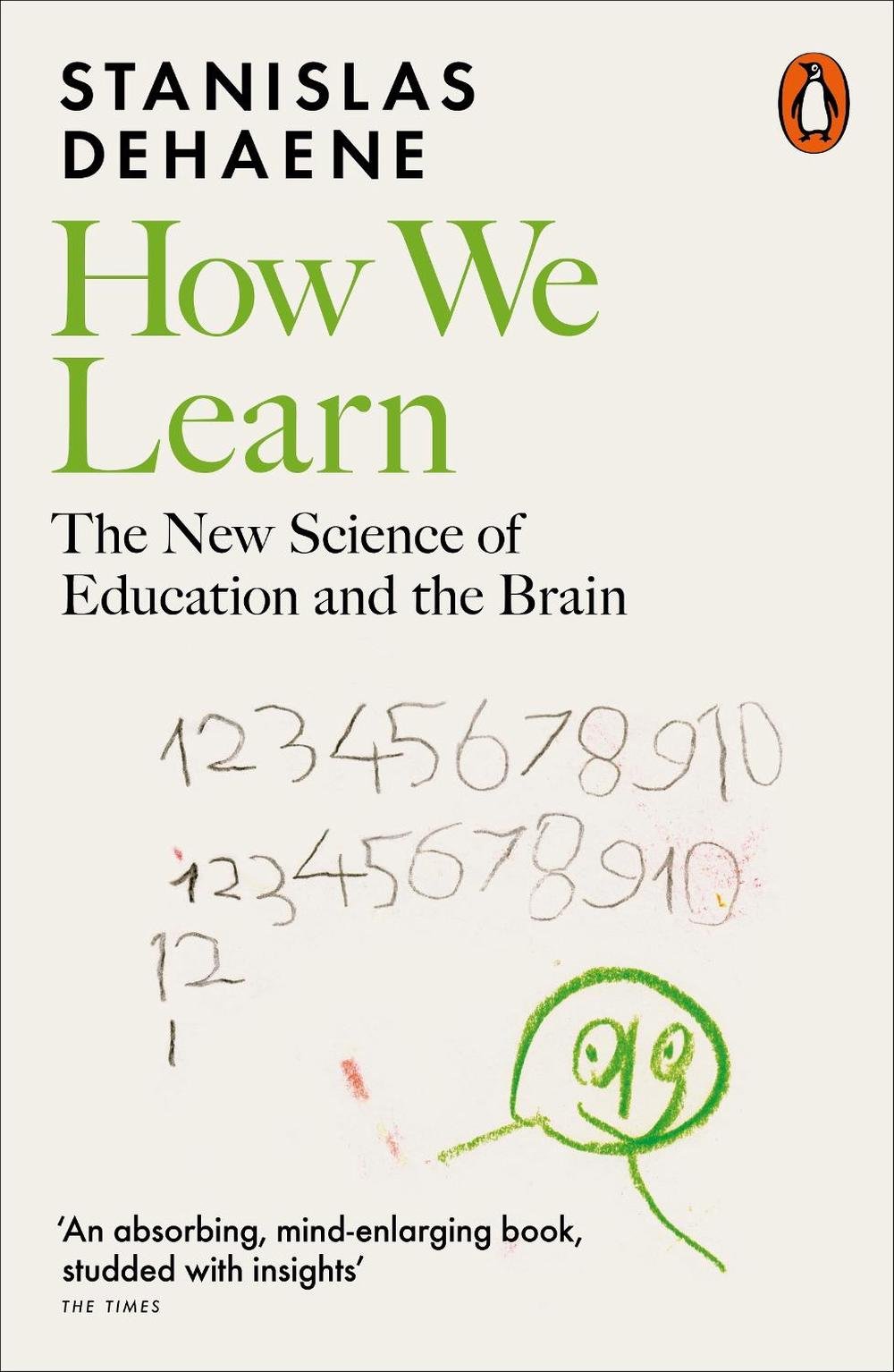
$34.32
- Paperback
352 pages
- Release Date
3 May 2021
Summary
An illuminating dive into the latest science of how we learn - and how we do it better than machines.
In today’s technological society, with an unprecedented amount of information at our fingertips, learning plays a more central role than ever. In How We Learn, Stanislas Dehaene decodes its biological mechanisms, delving into the neuronal, synaptic, and molecular processes taking place in the brain. He explains why youth is such a sensitive period, but also assures us that we…
Book Details
| ISBN-13: | 9780141989303 |
|---|---|
| ISBN-10: | 0141989300 |
| Author: | Stanislas Dehaene |
| Publisher: | Penguin Books Ltd |
| Imprint: | Penguin Books Ltd |
| Format: | Paperback |
| Number of Pages: | 352 |
| Release Date: | 3 May 2021 |
| Weight: | 282g |
| Dimensions: | 198mm x 129mm x 20mm |
You Can Find This Book In
What They're Saying
Critics Review
This is an absorbing, mind-enlarging book, studded with insights … Could have significant real-world results.
This is an absorbing, mind-enlarging book, studded with insights … Could have significant real-world results. – James McConnachie * Sunday Times *An entertaining survey of how science from brain scans to psychological tests is helping inspire pedagogy. Dehaene challenges many tropes [and] describes much of his own pioneering work … Well translated from the French with some touching references to his upbringing, from the cult film La Jetée to the writing of Daniel Pennac. – Andrew Jack * Financial Times *An expert overview of learning … Dehaene’s fourth insightful exploration of neuroscience will pay dividends for attentive readers. * Kirkus *
About The Author
Stanislas Dehaene
Stanislas Dehaene is one of Europe’s leading neuroscientists, and has been studying how education changes our brains for over thirty years. He is professor of Experimental Cognitive Psychology at the Collège de France, and director of the NeuroSpin brain imaging in Saclay. He is a member of seven academies and has received several international prizes, including the highest award in neuroscience, the Brain Prize. Dehaene’s previous books, which have been translated into fifteen languages, include Consciousness and the Brain, Reading in the Brain and The Number Sense.
Returns
This item is eligible for free returns within 30 days of delivery. See our returns policy for further details.




